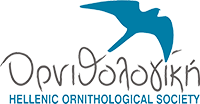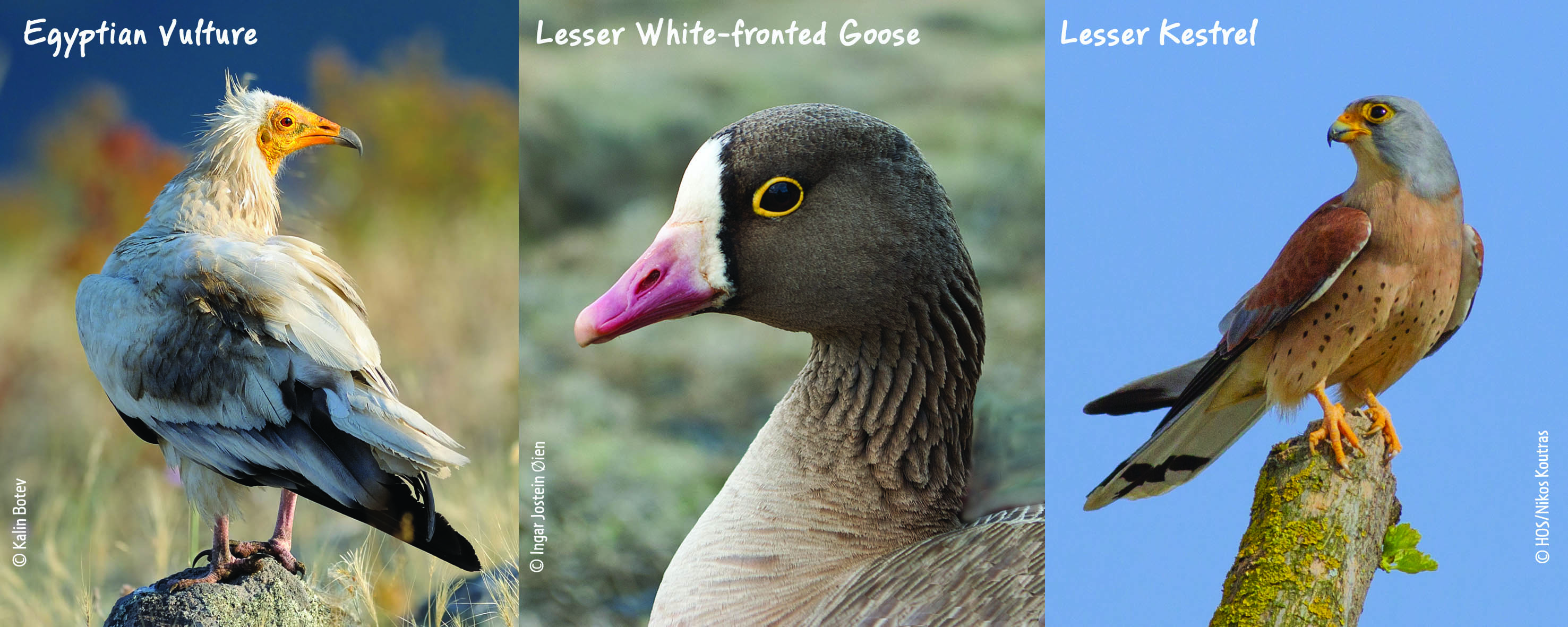A Greek first was the adoption of three Species Action Plans published in the Official State Gazette as three separate Joint Ministerial Decrees. The Deputy Minister of Environment and Energy together with the Minster of Economic Affairs jointly signed the Decrees that were published last week. This great development came at the same time with the adoption of the Multi-species Action Plan to Conserve African-Eurasian Vultures adopted at the 12th Meeting of the Conference of the Parties to CMS (COP12) in Manila.
These much awaited National Action Plans for the Egyptian Vulture and the Lesser White-fronted Goose, as well as the Regional Action Plan for the Lesser Kestrel (region of Thessaly in central Greece) describe very clearly the necessary actions required to be taken in Greece in order to safeguard these iconic species over the following five-year period.
The Hellenic Ornithological Society (HOS)/ BirdLife Greece, with the help of other partners from the respective LIFE+ projects, delivered this successful result after several years of efforts and of close collaboration with the Ministry of Environment and Energy. The Lesser White-fronted Goose, the Egyptian Vulture and the Lesser Kestrel are listed in the Red Data Book of Endangered Species of Greece and are strictly protected by both national and European legislation as well as by international conventions.
The National Law for Biodiversity foresees the adoption of such Species Action Plans as necessary for the effective protection of endangered species. The contribution of Greece to the international conservation efforts to protect these migratory birds is especially significant due to the country’s importance in the species’ annual life cycle. More specifically, the Fennoscandian population of the Lesser White-fronted Goose that currently counts only approximately 30 pairs spends 6 months every year staging and wintering in the wetlands of Northern Greece. As for the Lesser Kestrel, Thessaly in central Greece hosts the largest breeding colony in Eastern Europe, while practically the entire Balkan population of the Egyptian Vulture migrates through Greece, where the illegal use of poison baits has decimated the breeding population to only five pairs.
Everyone at HOS/BirdLife Greece is delighted and very proud to see the fruits of many years of hard work. The news are particularly important as this is the first time that Greece adopts Action Plans for the protection of endangered species. Although Species Action Plans had been drafted in the past, none had been endorsed due to the lack of a concrete legal framework. The HOS/BirdLife Greece is now eager to see the implementation of these three Action Plans, the costs of which have also been secured through state funding. The adoption of these Joint Ministerial Decrees paves the way forward for the establishment of National Action Plans also for other endangered species in Greece.
Notes:
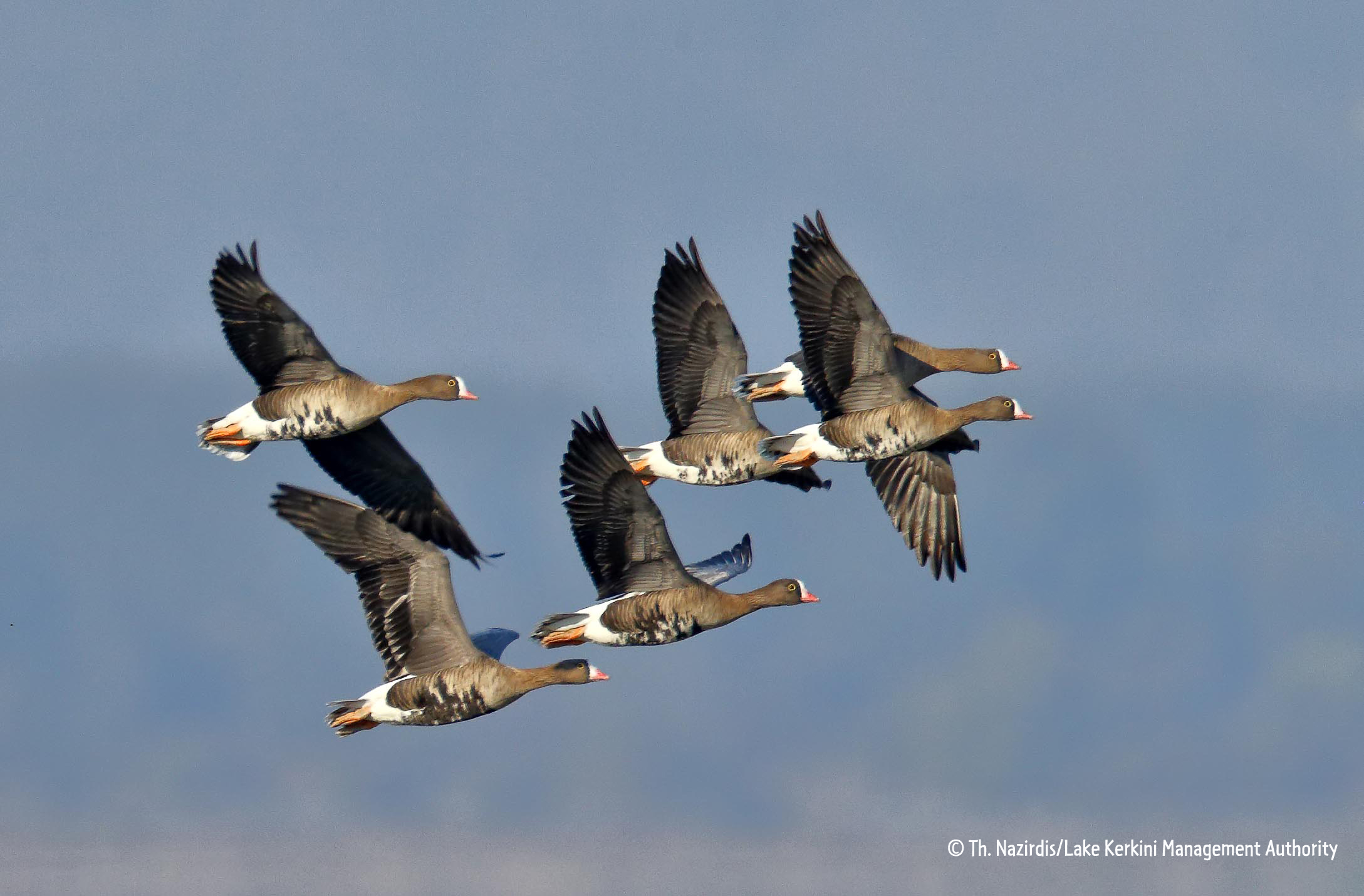
1. The Lesser White-fronted Goose Anser erythropus is the most endangered waterbird in Europe. The Fennoscandian population of the species breeds in the northern part of Scandinavia and winters in the wetlands of Northern Greece. It is classified as Critically Endangered both at a national and at a European level. HOS has been working for the conservation of this species for the last 20 years mainly through the implementation of LIFE projects. The LIFE+ Project for the Lesser White-fronted Goose (LIFE+10 NAT/GR/000638) coordinated by HOS/BirdLife Greece was completed in April 2017. More information can be found on the project website https://wwf.fi/en/lwfg. The National Action Plan was drafted by HOS in collaboration with the Forest Research Institute of the Hellenic Agricultural Organization "Demeter".
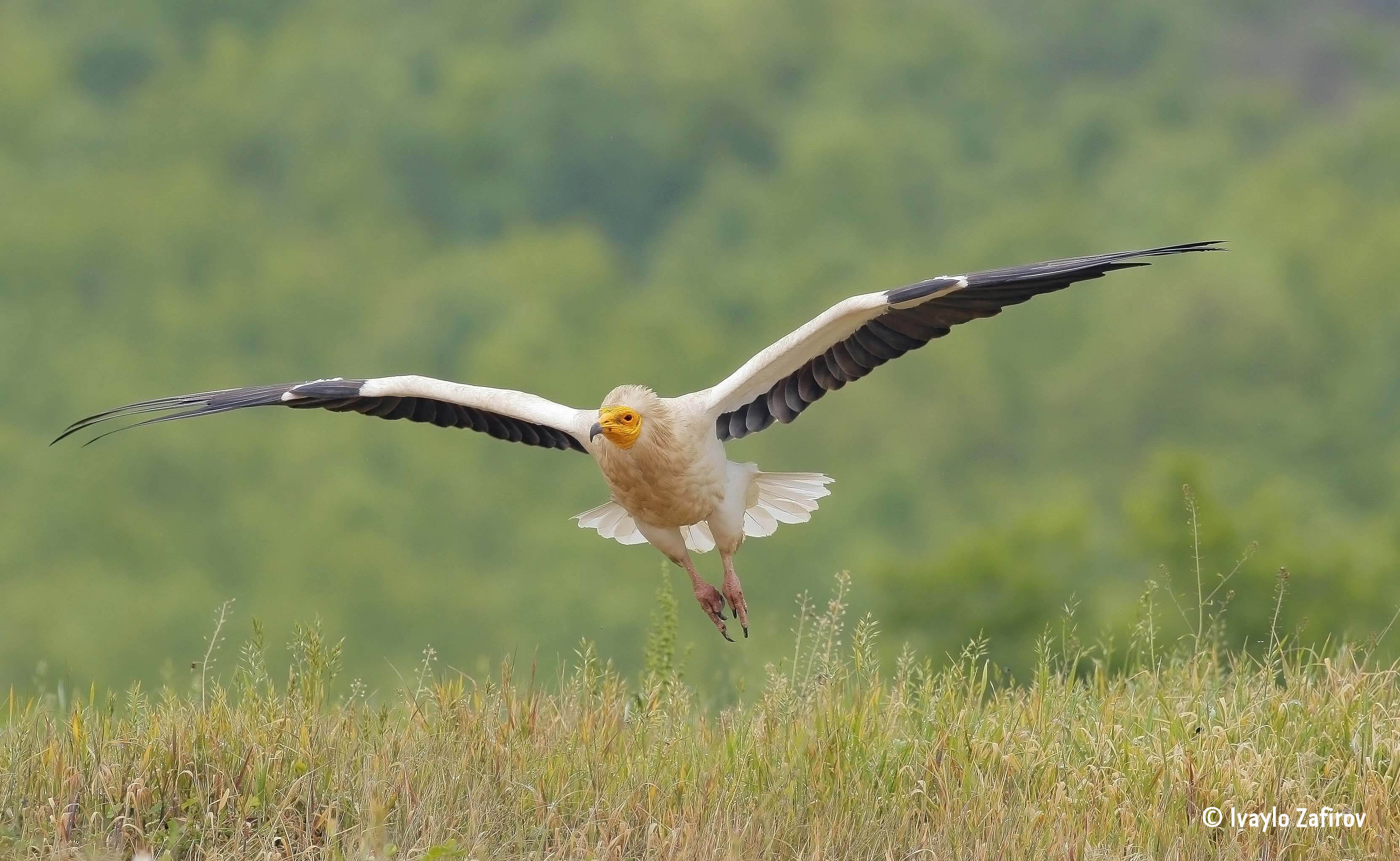
2. The Egyptian Vulture Neophron percnopterus is the most endangered vulture in Europe. During the last 30 years over 95% of the species population in Greece has disappeared and now stands at the brink of extinction with only five pairs left, having already become extinct in many other Balkan countries (Croatia, Bosnia, Serbia and Montenegro). It is classified as Critically Endangered and it is strictly protected by national and European legislation. In 2016 HOS, together with other three project partners (BSPB, WWF Greece and RSPB) completed the LIFE+ Project “The Return of the Neophron” (LIFE+10 NAT/BG/000152) that implemented innovative actions for the protection of the species, while 2017 has seen the beginning of an even more ambitious LIFE project, with actions along the entire species flyway. You can find the project’s Layman’s report at www.lifeneophron.eu/gr/Laymans-report.html. The National Action Plan was drafted by HOS in collaboration with WWF Greece.
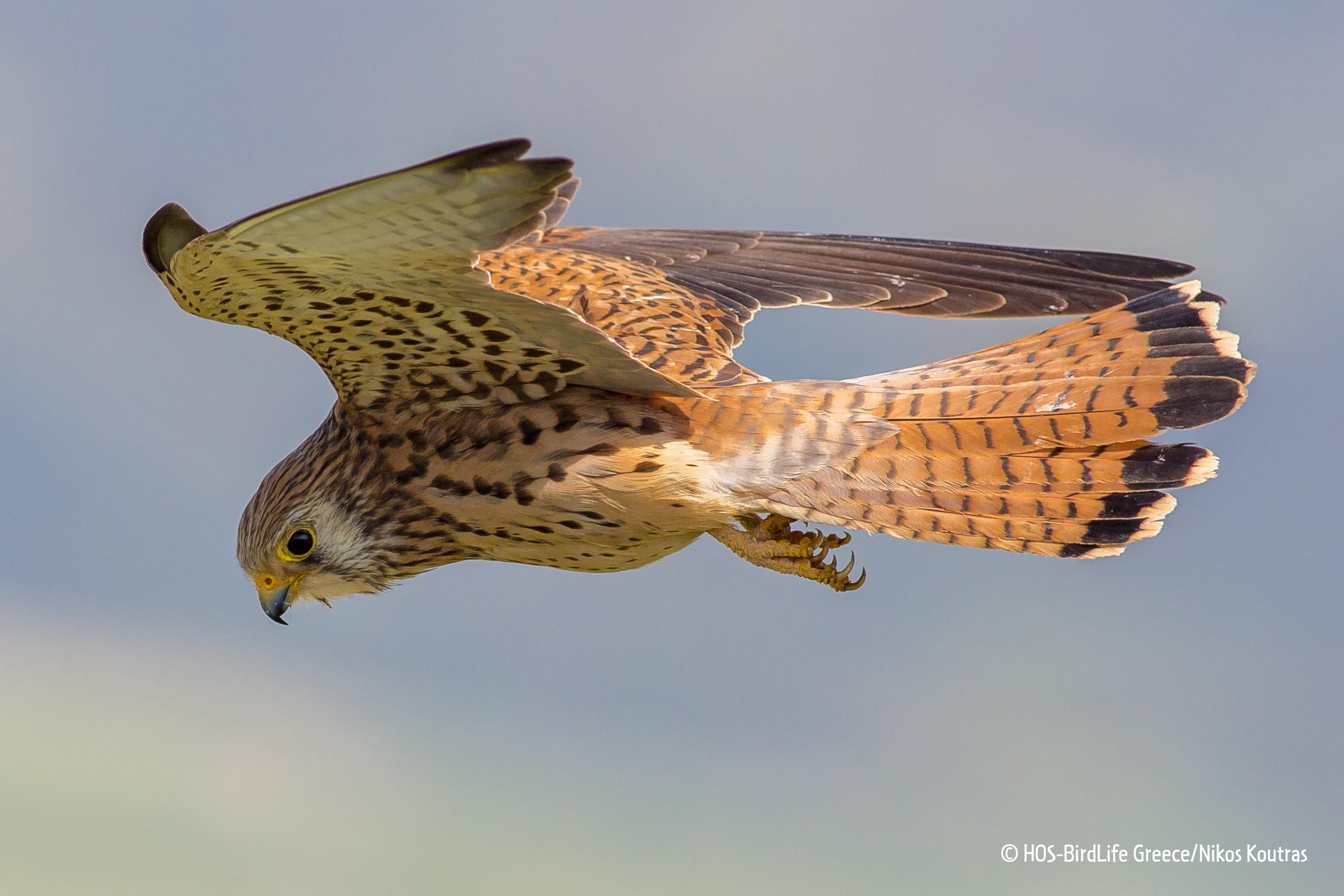
3. The Lesser Kestrel Falco naumanni is a small migratory falcon that breeds in colonies at the southern part of Europe and winters in sub-Saharan Africa. The Thessaly Plain in central Greece holds the largest part of the Greek breeding population, with over 5,000 pairs. The Lesser Kestrel nests in the buildings of the villages spread along the Plain and feeds on insects (mainly grasshoppers) on the neighbouring fields. The rapid changes in the rural landscape, mainly due to the intensification of agriculture and the use of insecticides and fertilizers, have resulted in a sharp decline in the population over the past 30 years. HOS participated in a 5-year project “LIFE for the Lesser Kestrel” (LIFE+11 NAT/GR/1011) implemented in the Thessaly plain. The project was coordinated by the University of Thessaly in collaboration with Nature Conservation Consultants Ltd., the Municipality of Riga Fereou and the Management Body of Karla National Park. More information can be found on the project’s website www.lifelesserkestrel.eu.

